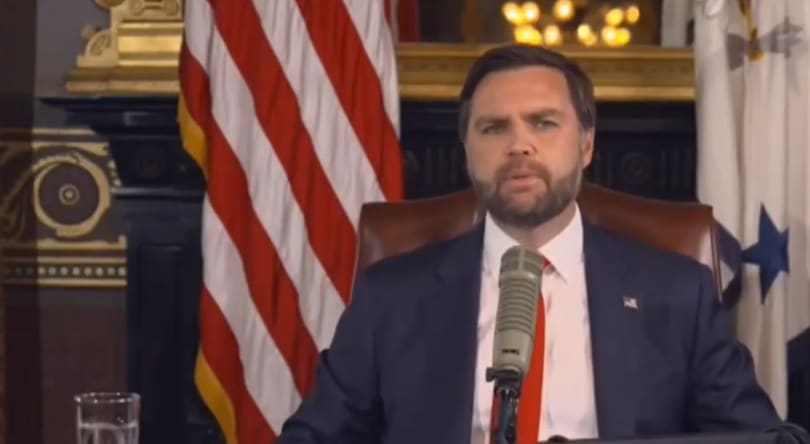In July, the Energy Department released a report challenging many of the mainstream narratives surrounding climate change. The report, which was authored by the Climate Working Group (CWG)—a team of five climate scientists and economists—was drafted to "encourage a more thoughtful and science-based conversation about climate change and energy," according to Energy Secretary Chris Wright.
"To correct course, we need open, respectful, and informed debate. That's why I'm inviting public comment on this report," the energy secretary wrote in the report's foreword. The publication has indeed opened up debate, garnering nearly 60,000 comments in the Federal Register. But it has also introduced a series of legal challenges against the agency and the CWG.
On Thursday, the United States District Court for the District of Massachusetts heard arguments in a lawsuit filed by two environmental groups—the Environmental Defense Fund and Union of Concerned Scientists—against the Energy Department, Environmental Protection Agency (EPA), and the CWG.
The lawsuit argues that when forming the CWG, Wright and the Energy Department violated the Federal Advisory Committee Act (FACA), which requires federal advisory groups to provide meeting notices and meeting notes to the public, create an approved charter of the group's mission, and "have a balanced membership in terms of 'the points of view represented and the functions to be performed by the advisory committee,'" according to the the Congressional Research Service.
Much of the lawsuit focuses on the viewpoint balance of the CWG, with the plaintiffs arguing that "all five authors are well known for holding 'contrarian views on climate science that are out of step with the mainstream'" and "none of the members represents the consensus view among climate scientists that human activities…have unequivocally caused global warming." To remedy the lawsuit, the environmental groups are demanding that the working group be disbanded, the report be vacated, and CWG members be prohibited from advising federal agencies until the defendants "comply with all requirements for the group to operate legally as an advisory committee."
The Energy Department has refuted claims that it violated the FACA, arguing that the CWG is not an advisory group under the law because it was created to "exchange facts or information" with the Energy Department, not to "make recommendations on an identified governmental policy for which specified advice was being sought." Additionally, the CWG was disbanded on September 3, in a letter sent from Wright to the group's members, rendering "most of Plaintiffs' claims…moot due to the CWG's dissolution." Even with the CWG officially being shut down, its members will continue to collaborate (outside of the federal government's scope) and update the report, according to Bloomberg.
While the environmental groups are centering their lawsuit around a violation of federal rules, their true reasoning for challenging the CWG report is to halt the EPA's reconsideration of the endangerment finding—a 2009 rule that allows the agency to regulate carbon dioxide emissions under the Clean Air Act. According to the environmental groups, the CWG was formed "because the overwhelming scientific consensus—and the federal government's own expert analyses and reports—demonstrate the lack of any scientific basis to reconsider the Endangerment Finding," which forced the federal government to "manufacture purported expert opinions upon which the Administration could rely." The Energy Department argues that the EPA also cited "numerous other sources" to justify its reconsideration. Public comments on the proposed rule are open through September 22.
The CWG's efforts have not only received legal pushback but scientific pushback as well. The report—which does not outright deny the existence of climate change, but does challenge the conclusion that it is an existential threat—garnered a robust response from "more than 85 climate experts" earlier in September. However, the partisan nature of this response and the CWG's report "show how not to do scientific assessment," writes Roger Pielke Jr., a climate scientist who was heavily cited in the CWG report.
While Pielke may be right, the legal response to vacate the report and silence its authors and their contrarian views is arguably more concerning for the future of climate change discussions. The politicization of the study also raises the question of what role, if any, the federal government should play in collecting and communicating climate science.
Then again, Wright did commission the CWG report to stimulate "informed debate" on climate change. The lawsuit may not have been what he originally had in mind, but it has kick-started conversations on the topic nonetheless.
The post Environmental Groups Are Suing To Silence Scientists Who Wrote a Report Questioning Climate Change Alarmism appeared first on Reason.com.













 Bengali (Bangladesh) ·
Bengali (Bangladesh) ·  English (United States) ·
English (United States) ·